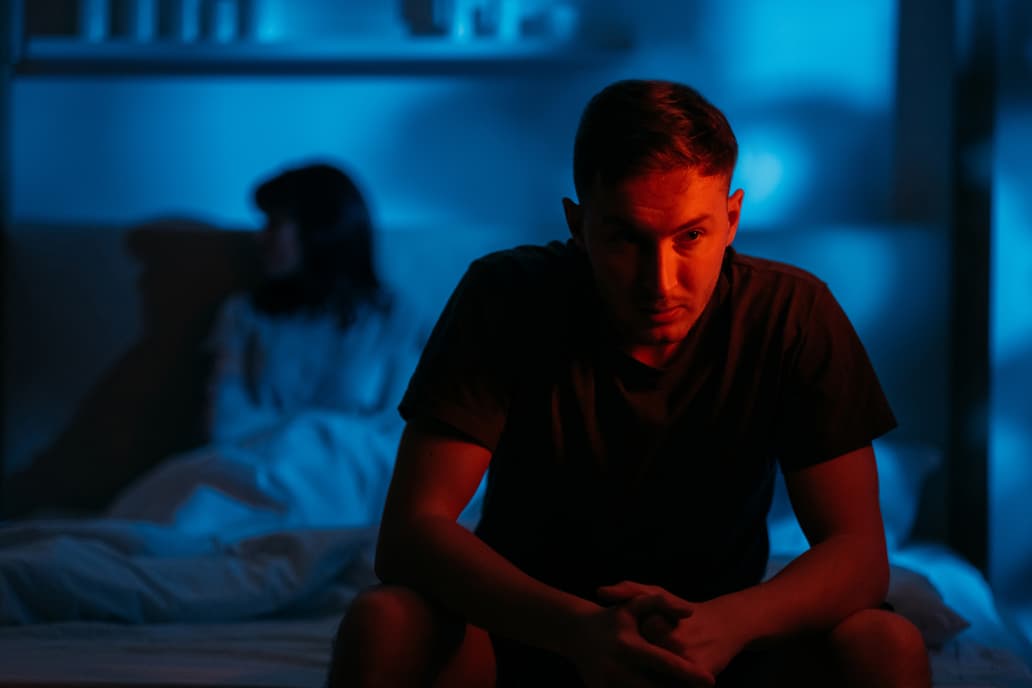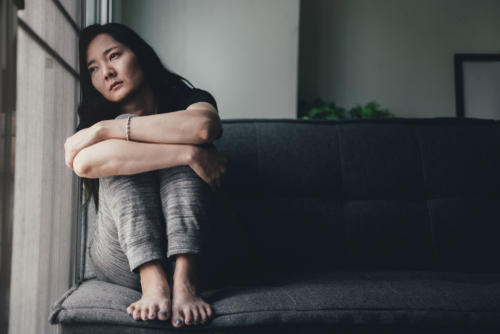Struggling with jealousy, feeling insecure, and feeling nervous about being separated from your partner are all possible signs of anxious attachment. Rooted in childhood fear of abandonment and feelings of being underappreciated, anxious attachment can affect your adult relationships in a number of ways, often causing trust and intimacy problems.
If you worry that you have an anxious attachment style, you can learn how to build trust in your relationship by attending a workshop tailored to your unique needs. If you learn more about how anxious attachment comes about, you’ll be able to regulate the difficult emotions triggered by your childhood wounds. Understanding how your early experiences shaped who you are today is the first step in building healthy behavioral patterns and mechanisms.
Keep reading to learn what anxious attachment is, what may trigger it, and how you can work on changing unhealthy survival patterns.
What Is Insecure Anxious Attachment?

As a kid, you were completely dependent on your parents or caregivers for protection and nurture. If you were denied an appropriate emotional environment in your childhood, you may have developed an insecure attachment pattern. Anxious attachment, in particular, tends to come about in children who get inconsolable when their caregivers neglect and abandon them.
Do you struggle to feel secure in your relationships? Do you experience a deep fear of abandonment and constantly worry about your partner leaving you? Does your complete inner world feel uncertain, as well as your relationships with others? These may all be signs that you have an anxious attachment style.
What Does Anxious Attachment Look Like?
Not sure if your attachment style could be anxious at times? This may be the case if you:
- Struggle with trusting others. Do you often feel like other people don’t have your best interest in mind? Or struggle sharing secrets? Do you expect other people to lie, cheat, or betray you?
- Have low self-worth. People with anxious attachment often have low-self esteem and struggle with confidence.
- Constantly worry that your partner may abandon you. Do you consider yourself to be clingy? Are you afraid that your partner doesn’t love you or think that they are cheating even if you don’t have a good reason to believe so?
- Crave intimacy and closeness. You want to be loved and valued in your relationship, yet often overstep boundaries when seeking intimacy.
- Seek frequent reassurance from your loved ones. It is perfectly natural to seek validation and appreciation from others. However, anxious attachment may take this to another level, causing a compulsive need for reassurance.
- Are highly sensitive to the moods and actions of your partner. How easy is it for you to differentiate between your own moods and your partner’s? Do you focus on their emotional state more than your own?
- Tend to be impulsive, moody, and highly emotional. Individuals with anxious attachment often experience shifting and unstable moods. They may act without thinking and struggle with self-regulation.
What Triggers Anxious Attachment?
While it is not entirely clear to define everything that may cause anxious attachment, inconsistent parenting seems to be an important contributing factor.
If your parents or caregivers were nurturing and loving at some times and emotionally unavailable or cold at others, it may have caused you to become insecure and confused. As a child, you didn’t know what to expect from your parents and their actions therefore if can leave you with a feeling of unmet longing. craved their love and protection.
Parents who struggle to respond adequately to signs of distress in their child may also contribute to anxious attachment. For example, they may consistently not pick up their crying child because they don’t want to “spoil” the child. Other inconsistent parenting patterns may include harsh criticism, insensitivity, and ambivalence. All of this may cause the child to become “whiny” or “clingy”, and transfer these learned behaviors into adulthood.
As your attachment style is adopted in a critical period of your upbringing, it can be difficult to overcome, just like it is to break free from dysfunctional family patterns in general. However hard it may be, it is possible to heal your inner child and adjust your behavioral patterns in a beneficial way.
You can learn how to value yourself and meet your own needs. Awareness and understanding of your survival patterns can help you create stronger relationships and create your own set of values and goals.
How Do I Change My Anxious Attachment Style?
While it may not be possible to change the attachment patterns you developed as a child, you can learn how to feel safer and more secure in your romantic relationships. Self-awareness and conscious effort are a big part of this. Try the following steps:
- Try to observe and become aware of your typical modes of interaction in relationships.
- Identify the emotions underlying your insecurity and anxiety as well as your reactions to them.
- Practice self-regulation strategies and work on controlling your impulses.
- Practice mindfulness and meditation. This can help you control your impulses and reactions in a calm, thoughtful manner.
- Contact an experienced relationship coach who can provide you with effective strategies for healing your childhood wounds.
Attend A Relationship Building Skills Workshop & Gain Awareness Of Your Attachment Patterns

At PIVOT, we understand how hard it can be to change learned behaviors and create more secure relationships. We want to provide you with resources and strategies for understanding your survival patterns and effectively managing difficult emotions. Our experience and expertise-based relational modules and tailored workshops for couples are designed to enable your healthy adult to emerge and repair the actions that are no longer serving you.
Remember that you can bring your highest self to consciousness and choose healthier mechanisms for creating connections in your life. The compassionate team at PIVOT will show you how to think rationally (THINK), develop emotional intelligence (FEEL) and take healthy action (DO) to improve your well-being and eliminate drama. Contact PIVOT now and start your journey to becoming a healthy adult!




